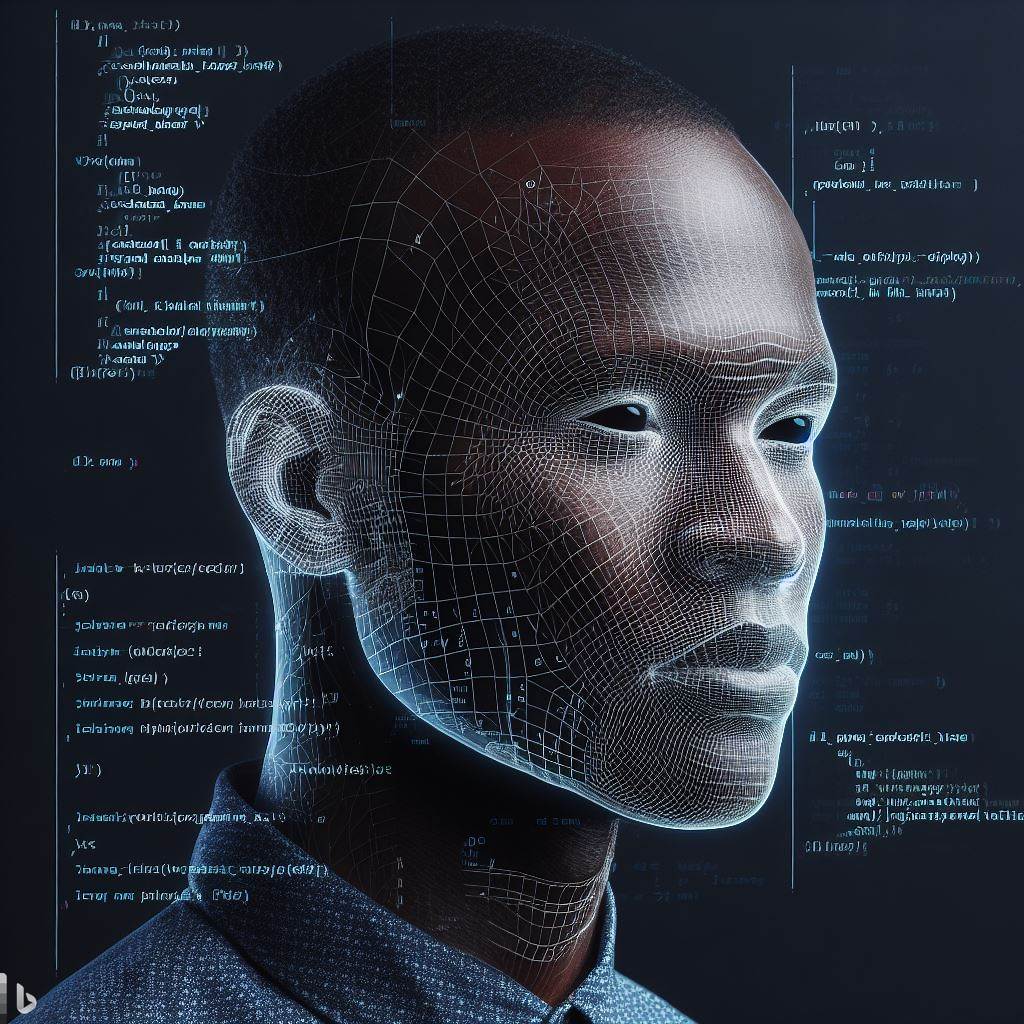Introduction
Remote coding job interviews have become increasingly important in our modern work environment.
In this blog post, we will discuss the best practices for conducting these interviews effectively.
- Prepare in advance: Familiarize yourself with the candidate’s resume and job requirements to ask relevant questions.
- Test technical skills: Utilize coding exercises or tests to assess the candidate’s coding abilities remotely.
- Use video conferencing: Conduct the interview via video call to establish a personal connection and gauge nonverbal cues.
- Ensure a stable internet connection: Both parties must have a reliable internet connection for seamless communication.
- Create a comfortable environment: Find a quiet and well-lit space for the interview and encourage the candidate to do the same.
- Provide clear instructions: Clearly communicate the interview format, including any coding challenges or tests.
- Evaluate problem-solving skills: Ask open-ended questions to understand the candidate’s problem-solving approach and logical thinking.
- Assess collaboration skills: Use remote collaboration tools to evaluate how well the candidate can work in a distributed team.
- Allow time for questions: Encourage the candidate to ask questions to assess their interest and understanding of the role.
- Follow up promptly: Provide timely feedback and next steps to keep the candidate engaged and informed.
Therefore, remote coding job interviews are crucial in today’s work landscape.
By following these best practices, hiring managers can effectively evaluate candidates and make informed decisions that benefit their organizations.
Preparing for the Interview
When it comes to remote coding job interviews, preparation is key.
By taking the time to research the company, review the job description, and familiarize yourself with common coding interview questions, you can increase your chances of success.
Additionally, practicing coding exercises and algorithms will help you demonstrate your skills effectively during the interview.
Research the company and the role
To begin with, researching the company and the role is crucial.
This information will not only give you insight into the company’s goals and values but also help you align your answers with their expectations.
By understanding the company’s culture, you can tailor your responses to showcase your fit within the organization.
Review the job description and required skills
Next, reviewing the job description and required skills is essential.
This will provide you with a clear understanding of the technical competencies the employer is seeking.
Ensure that you are well-versed in these skills and can speak confidently about your experience in these areas.
Familiarize yourself with common coding interview questions
Familiarizing yourself with common coding interview questions is another important step.
Research and practice common coding problems such as algorithms, data structures, and programming concepts.
Tech Consulting Tailored to Your Coding Journey
Get expert guidance in coding with a personalized consultation. Receive unique, actionable insights delivered in 1-3 business days.
Get StartedThis preparation will enable you to approach coding questions with confidence and efficiency during the interview.
Practice coding exercises and algorithms
Moreover, it is crucial to practice coding exercises and algorithms regularly.
Utilize online coding platforms and challenges to enhance your problem-solving skills.
The more you practice, the more comfortable and proficient you will become in coding during the interview.
Set up a quiet and professional interview space
Creating a suitable interview space is equally important.
Select a quiet and professional setting for the virtual interview.
Ensure adequate lighting and minimize background distractions.
A clutter-free and well-organized space will help you maintain focus and present yourself professionally.
Test your equipment and ensure a stable internet connection
Before the interview, test your equipment to ensure a smooth virtual experience.
Check your computer, microphone, speakers, and webcam for any technical issues.
Make sure you have a stable internet connection to avoid any disruptions during the interview.
Most importantly, preparing for remote coding job interviews requires thorough research, practice, and attention to detail.
By researching the company and role, reviewing the job description and required skills, familiarizing yourself with common coding interview questions, practicing coding exercises, setting up a suitable interview space, and testing your equipment, you can confidently approach your interview and increase your chances of success.
Read: The Skills You Need for a Successful Remote Coding Career
Build Your Vision, Perfectly Tailored
Get a custom-built website or application that matches your vision and needs. Stand out from the crowd with a solution designed just for you—professional, scalable, and seamless.
Get StartedTechnical Setup
When it comes to remote coding job interviews, having a solid technical setup is crucial for a successful interview process.
Here are some best practices to ensure a smooth virtual interview experience:
Use a Reliable Video Conferencing Platform
Choose a video conferencing platform that is reliable and commonly used by professionals.
Popular platforms like Zoom, Microsoft Teams, or Google Meet are often preferred due to their stability and user-friendly interfaces.
Prepare Backups for Internet and Power Outages
Remote interviews heavily rely on internet connectivity.
To prevent any disruptions, ensure you have a backup plan in case of internet outages or power failures.
Consider having a mobile hotspot or alternative power sources ready.
Test your Webcam, Microphone, and Speakers
Prior to the interview, conduct thorough tests to ensure your webcam, microphone, and speakers are functioning properly.
Check for any technical issues and make necessary adjustments or replacements if needed.
Configure Screen Sharing Settings
Screen sharing may be required during the interview to showcase your coding skills or review code together.
Familiarize yourself with the screen sharing feature of the chosen video conferencing platform to avoid any last-minute complications.
Familiarize Yourself with Coding Collaboration Tools
Many companies use specific coding collaboration tools to facilitate remote work.
Take the time to familiarize yourself with these tools, such as Git, JIRA, or Slack, before the interview.
This shows your adaptability and willingness to use the company’s preferred tools.
Optimize Your Profile, Get Noticed
Make your resume and LinkedIn stand out to employers with a profile that highlights your technical skills and project experience. Elevate your career with a polished and professional presence.
Get NoticedBy following these best practices for technical setup, you can ensure a seamless remote coding job interview experience.
Remember, a well-prepared setup eliminates distractions and allows you to focus on showcasing your coding skills and qualifications effectively.
Read: The Role of Coding Bootcamps in Landing a Job in Tech
Presenting Yourself Professionally
When it comes to remote coding job interviews, presenting yourself professionally is crucial.
The way you dress, maintain posture and eye contact, speak, and show enthusiasm can greatly influence the impression you make on the interviewer.
To ensure you project a professional image, follow these best practices:
Dress Appropriately
- Select attire that matches the company’s dress code or leans towards a more formal look.
- Dressing professionally helps create a positive first impression and shows respect for the interview process.
Maintain Good Posture and Eye Contact through the Camera
- Sit upright with a straight spine and avoid slouching during the interview.
- Make frequent eye contact with the camera, as it simulates direct eye contact with the interviewer.
- Body language can convey confidence, so be aware of your posture and eye contact throughout.
Speak Clearly and Confidently
- Speak audibly and articulately to ensure the interviewer understands your responses.
- Take your time when answering questions and avoid using excessive filler words.
- Convey confidence in your voice to showcase your expertise and abilities.
Avoid Distractions and Interruptions
- Find a quiet space where you won’t be interrupted during the interview.
- Turn off notifications on your phone, computer, or any other devices that could cause distractions.
- Close irrelevant tabs or applications on your computer to prevent temptation or accidental sharing.
Show Enthusiasm and Passion for Coding
- Express your passion for coding through your words and tone during the interview.
- Highlight any relevant projects or experiences that demonstrate your enthusiasm and dedication.
- Engage actively with the interviewer, showing genuine interest in the role and company.
Combining these best practices will help you present yourself professionally and increase your chances of successfully landing a remote coding job.
Remember that your appearance, behavior, and communication skills play a significant role in the impression you make on the interviewer.
By paying attention to these details, you can set yourself apart from other candidates and showcase your potential as a remote coder.
Read: Top 5 CodeHS Courses You Should Take to Learn Java

During the Interview
In remote coding job interviews, it is crucial to demonstrate your coding skills and problem-solving abilities effectively.
The interviewer relies on your ability to communicate and problem-solve as they cannot observe your non-verbal cues in the same way as an in-person interview.
Here are some best practices to ace your remote coding job interview:
1. Listen Carefully to the Interviewer’s Questions
Active listening is key to understanding the requirements.
Pay attention to every detail provided in the question to ensure a precise and accurate response.
2. Ask Clarifying Questions If Needed
If you are unsure about any aspect of the question, don’t hesitate to ask for clarification.
It shows your eagerness to understand the problem thoroughly.
3. Think Aloud While Solving Coding Problems
Verbalizing your thought process gives the interviewer insight into your problem-solving skills.
Explain your approach, discuss possible solutions, and consider trade-offs.
4. Use Proper Coding Conventions and Naming Conventions
While writing code, adhere to industry best practices.
Use consistent indentation, proper variable naming conventions, and follow coding style guidelines.
This demonstrates your professionalism and attention to detail.
5. Test and Debug Your Code Before Sharing
Before sharing your solution, make sure to test it thoroughly.
This helps catch any logical errors or bugs that may exist.
Presenting clean and functional code showcases your diligence.
6. Communicate Your Thought Process Effectively
Clearly articulate your thinking behind your coding decisions.
Explain why you chose a particular approach and how you arrived at your solution.
This helps the interviewer understand your problem-solving abilities.
By following these best practices, you can confidently navigate a remote coding job interview and impress potential employers with your skills.
Emphasize active listening, clear communication, and adherence to coding conventions to showcase your abilities effectively.
Remember, practice makes perfect, so rehearse your problem-solving skills and improve your coding proficiency before the interview.
Good luck!
Read: Tips to Master Coding with CodeHS: A Student’s Guide
Common Interview Questions and Answers
When it comes to remote coding job interviews, being prepared is key in order to impress potential employers.
Part of this preparation involves understanding common coding interview questions and being able to provide well-thought-out answers.
Here are some common coding interview questions along with example answers and explanations:
1. Explain what a variable is and how it is used in coding
A variable is a named container that holds a value which can be manipulated or referenced in a program.
It helps in storing and managing data during runtime.
2. Describe the difference between a list and a tuple
A list is a mutable data structure in which elements can be modified or removed, while a tuple is an immutable data structure where elements cannot be changed once assigned.
3. How would you reverse a string in Python?
One way to reverse a string in Python is by using slicing.
For example, to reverse the string “hello”, you can use the code “string[::-1]”. This would return “olleh”.
4. What is recursion and when would you use it?
Recursion is a programming technique where a function calls itself to solve a problem.
It is often used when a problem can be divided into smaller subproblems that follow the same pattern.
5. Explain the concept of object-oriented programming
Object-oriented programming (OOP) is a programming paradigm that organizes data and behavior into reusable structures called objects.
It promotes code reusability, encapsulation, and modular design.
6. How do you handle exceptions in your code?
Exceptions are handled using try-except blocks.
Code that might raise an exception is placed in the try block, and any potential exceptions are caught and handled in the except block.
7. What is the difference between a stack and a queue?
A stack is a Last-In, First-Out (LIFO) data structure where the last element added is the first one to be removed.
A queue is a First-In, First-Out (FIFO) data structure where the first element added is the first one to be removed.
8. Describe the concept of Big O notation
Big O notation is used to describe the efficiency or complexity of an algorithm in terms of time and space.
It indicates how the algorithm’s performance scales with the input size.
9. How do you optimize the performance of a website?
There are several ways to optimize a website’s performance, such as minimizing HTTP requests, leveraging caching, optimizing images, using a CDN, and reducing server response time.
10. Explain the importance of version control in software development
Version control is crucial in software development as it allows for tracking changes, collaborating with team members, reverting to previous versions, and ensuring code integrity and stability.
Understanding and being able to explain common coding interview questions is essential for remote coding job interviews.
By familiarizing yourself with these questions and practicing thoughtful answers, you can showcase your skills, problem-solving abilities, and knowledge to potential employers.
Delve into the Subject: Mastering Google’s Coding Style: Tips and Tricks
Post-Interview Follow-up
In order to make a strong impression and stand out among other candidates, it is essential to follow up after a remote coding job interview.
Here are some best practices for post-interview follow-up:
1. Send a Thank You Email
Within 24 hours of the interview, send a personalized thank you email to the interviewer(s) expressing your appreciation for the opportunity to interview for the position.
2. Express Gratitude for the Opportunity
In your thank you email, convey your gratitude for the chance to showcase your skills and experience during the interview.
This will show your enthusiasm and professionalism.
3. Mention Key Points Discussed During the Interview
Refer to specific points or topics discussed during the interview to showcase your active listening skills and demonstrate your understanding of the role and its requirements.
4. Reiterate Your Interest in the Position
State your continued enthusiasm for the position and emphasize why you believe you are a good fit for the role based on the skills and qualifications discussed during the interview.
5. Offer to Provide Additional Information or Answer Any Follow-Up Questions
Show your willingness to go the extra mile by offering to provide any additional information that might be relevant to the hiring process.
Also, mention that you are available to answer any follow-up questions they may have.
6. Proofread and Edit Before Sending
Before hitting the send button, make sure to proofread your email for any errors or typos.
A well-written and error-free email reflects your attention to detail, which is highly valued in the coding field.
7. Use a Professional Tone
Keep the tone of your follow-up email professional and courteous.
Avoid using casual language or slang, and maintain a respectful and polite tone throughout.
8. Customize Your Email
Avoid using generic templates or copied content.
Tailor your email to reflect the specific details and discussions from your interview, making it more authentic and impactful.
9. Send Individual Emails to All Interviewers
If you interviewed with multiple individuals, send personalized thank you emails to each of them.
This demonstrates your appreciation for their time and shows that you value each interviewer’s contribution.
10. Keep the Email Brief
Avoid writing lengthy follow-up emails.
Keep your message concise and to the point, highlighting only the most important aspects of your interview and your interest in the position.
Post-interview follow-up is a crucial step in the remote coding job interview process.
A thoughtful and well-crafted thank you email can leave a positive impression on the interviewers and reinforce your qualifications and commitment to the role.
By following these best practices, you can increase your chances of landing the remote coding job you desire.
Conclusion
Remote coding job interviews can be challenging but with the right approach, they can also be successful.
It is crucial to recap the best practices discussed in this section.
Thorough preparation, professionalism, and effective communication are key factors in acing a remote coding job interview.
By implementing these practices, candidates can increase their chances of success and stand out from the competition.
It is important to emphasize the significance of being well-prepared, showcasing technical skills, and understanding the job requirements.
Additionally, maintaining a professional demeanor throughout the interview process is essential.
By following these guidelines, candidates can confidently navigate remote coding job interviews and secure their dream job.
It is time to embrace these best practices and take advantage of the opportunities offered by remote working.
Good luck on your remote coding job interviews!




